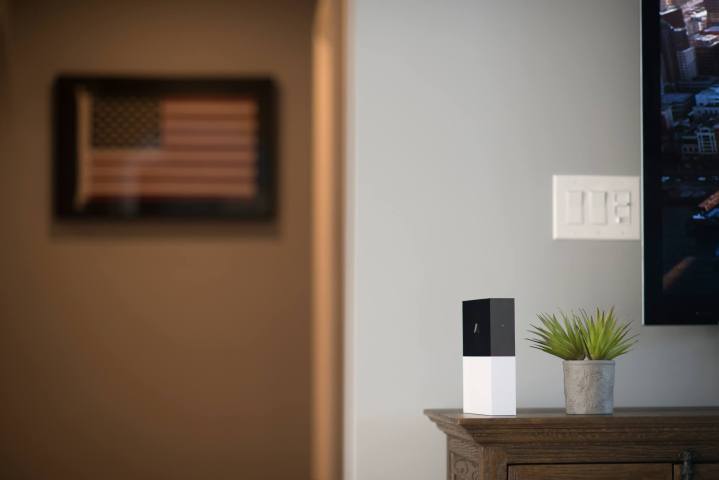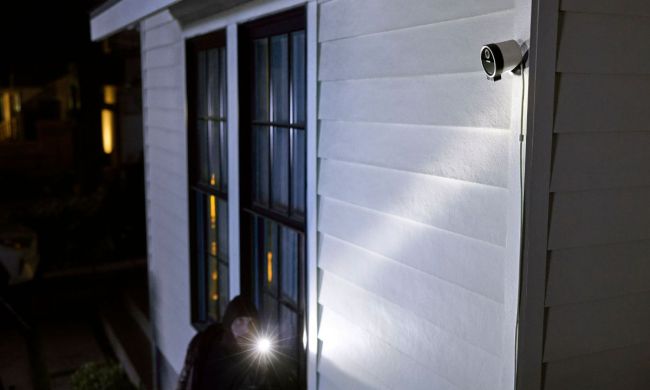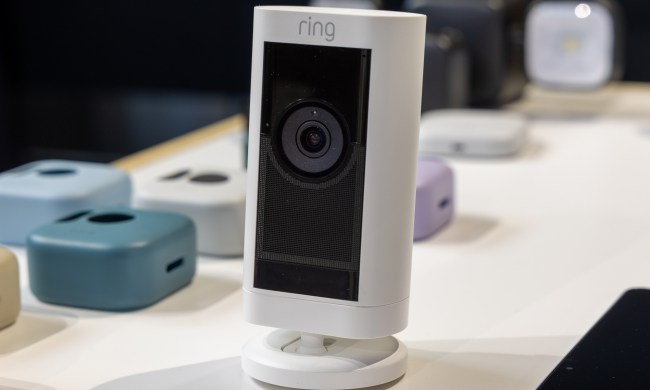
Keeping yourself safe shouldn’t cost an arm and a leg, and luckily, Abode Systems agrees. The DIY smart home security company announced a new configuration for its security starter kit earlier this year to make it easier for anyone and everyone to protect themselves and their loved ones. Now, to make things simpler still, Abode has brought Alexa to its security offerings, enabling Unlock by Voice and Unlock by App functionality that lets you unlock your doors integrated with the Abode system.
As Alexa does with other smart locks, she’ll ask for a pin code when you say, “Alexa, unlock my front door.” If you provide the correct series of numbers, the Amazon smart assistant will disarm the Abode system, and let you into your home without the need to pull out keys or punch in any numbers.
Moreover, the new Alexa integration will also allow you to control devices throughout the Abode ecosystem from the
Abode’s starter kit consists of an Abode gateway, a mini door-window sensor, a remote key fob, and a PIR motion sensor. The entire package will set you back $279, $20 less than its original price. And currently, the company’s products are on sale for 10 percent off.
The Abode gateway comes with a built-in 93 dB siren, battery backup, as well as Zigbee, Z-Wave, and Abode RF device support. The mini door-window sensor features Abode RF for long-range support, and promises a long battery life to continuously detect the opening and closing of entrances. You can quickly arm or disarm your entire Abode home security system with the remote key fob, while the PIR motion sensor can trigger alarms or automations upon detecting movement.
This reconfigured starter kit will still allow customers access to the same Android or iOS smartphone apps that existing Abode users are familiar with, as well as the same familiar web app and home automation engine. Plus, the new starter kit is compatible with most smart home devices and voice assistants. In fact, the starter kit boasts direct in-app integrations with Philips Hue, ecobee thermostats, LifX RGB light bulbs, and Nest devices. Moreover, Abode works alongside both Google Assistant and Amazon Alexa, so you can control your security with your voice.
Folks interested in purchasing further Abode services can check out plans like the Starter Kit + Connect Plan, which includes 3G cellular backup connection as well as 13 days of timeline and media storage. Alternatively, the Starter kit + Secure plan includes 24/7 professional monitoring, 3G cellular backup, and 90 days of timeline and media storage. The plans will set you back $329 and $379 respectively.
“Since the launch of Abode, we’ve collected feedback and implemented features and enhancements to our entire solution based on what our customers have shared with us,” said Abode Cofounder Chris Carney. “Based off the needs of our customers, we’re excited to introduce a new configuration of our starter kit to make Abode even more affordable while simultaneously keeping the same level of freedom, flexibility, and integrations intact.”
Updated on May 16: Abode adds Alexa integrations to its smart security solutions.


